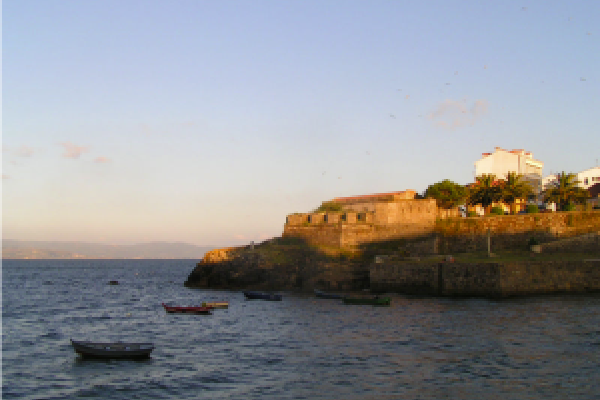
Learn Survival Galician
Wikivoyage users have collectively created a free Galician phrasebook with the goal of making it possible for travelers to "get by" while traveling in areas where Galician is spoken.
Wikivoyage phrasebooks are available in many languages and each one varies in depth and detail. Most of the phrasebooks include a pronunciation guide, a general phrase list, information about dates and numbers, a color list, transportation-related phrases, vocabulary for shopping and phrases for eating and drinking. Some are even more in depth, and all are free!
From Website
Galician is the Romance language most closely related to Portuguese. It is spoken in Galicia, which is in north-western Spain. Portuguese speakers (both European and Brazilian) will usually tell you that Galician is a dialect of their own language, while Galicians will tell you the opposite in a manner similar to that which exists between Bulgarians and Slav Macedonians.
Syill, Portuguese and Galician speakers can understand each other almost perfectly without a translator.
Galician has a different spelling and accent from Portuguese, and contains unique colloquialisms and traces of former cultures, using a number of pre-Indo-European, Celtic and Germanic words not found Portuguese. On the other hand, there are Arabic words found in Portuguese that are not found in Galician.
Galician (Galego) is a language of the Western Ibero-Romance branch, spoken in Galicia, an autonomous community located in northwestern Spain, as well as in border zones of the neighbouring territories of Asturias, Castile and León and northern Portugal.
Modern Galician and modern Portuguese are descended from a single Latin-derived language which linguists today call Galician-Portuguese or Mediaeval Galician or Old Portuguese. This common ancestral language was spoken in the territories of the mediaeval Kingdom of Galicia.
The current official Galician orthography was introduced in 1982, and made law in 1983, by the Real Academia Galega (RAG), based on a report by the ILG. It remains a source of contention, however; a minority of citizens would rather have the institutions recognize Galician as a Portuguese variety as cited before, and therefore still opt for the use of writing systems that range from adapted medieval Galician-Portuguese writing system or European Portuguese one.
Galician is a member of the following genetic language grouping:
Indo-European > Italic > Romance > Italo-Western > Western > Gallo-Iberian > Ibero-Romance > West-Iberian > Galician-Portuguese > Galician